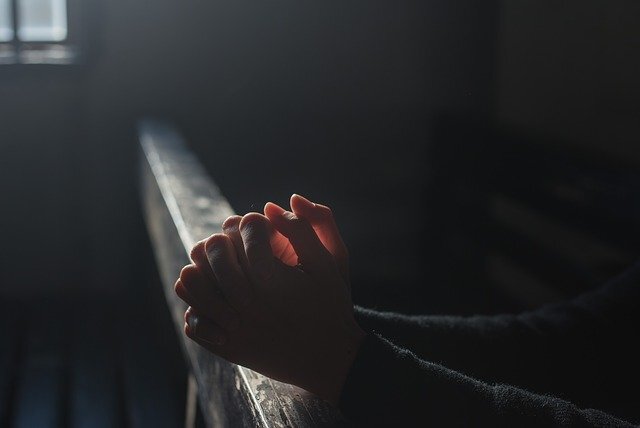NL 306: God Answers Hannah - 1 Samuel 1:9-11, 19-20; 2:1-10
image: pixabay
October 18, 2020
1 Samuel 1:9-11, 19-20; 2:1-10
Initial Thoughts
Be very attentive to those in your congregation who have lost a child, are unable to have children or have more children - this may really going to hit them hard
Bible Study
Background
Hannah is the wife of Elkanah who has another wife, Peninah
This tension is seen repeatedly: e.g. Sarah and Hagar, Rachel and Leah
Son = security, if Elkanah dies Hannah is left with nothing
This also sets the stage for her song in 1 Samuel 2 (later sung by Mary when she hears that she will give birth to Jesus)
It is important to note that “the future Hannah would have as a childless woman. Since men were usually considerably older than the young women they married, it is likely Hannah would have outlived Elkanah. At marriage, Hannah would have become part of Elkanah’s family and the responsibility of the men in the family. We do not know whether Elkanah had other male kin who would have supported Hannah upon his death, but if not… she would have only a life of extreme poverty to look forward to.” (Jo Ann Hacket, Women’s Bible Commentary, third edition, p. 154)
Hope in the midst of grief- things are not the way they should be
“Persecuted” by everyone else in the story: God, Peninah, Elkanah and Eli
She has no one to comfort her (kind of like Job)
Elkanah seems to be caring (he values her as more than simply a vessel of child-bearing) but is self-absorbed thinking his love should be enough. He is not attentive or present to her pain and grief
Until you have stood for years knocking at a locked door, your knuckles bleeding, you do not really know what prayer is
remains in prayer
“Her "prayer of groaning" makes her an icon not simply of the mother of a son who is prophetic and powerful, but of a human being who knows herself to be known and loved by God...God is very present to her; God is responsive and close by. The monarchy is born out of barrenness, anguish, and uninhibited entanglement with God's faithfulness. God's character is full of grace, full of compassion, and audacious enough to make fertile what is barren and make abundant what is scarce.” Marcia Mount Shoop, Feasting on the Word: Year B, Volume 4: Season After Pentecost 2 (Propers 17-Reign of Christ).
Holiness mistaken as drunkenness
Like Pentecost
Perhaps the assumption that she must have done something wrong in order to be barren
Lung cancer vs breast cancer
Rebukes before he asks her need - he does not know what she is going through
“Pray like there is no one watching”
Steadfast love of God endures forever
God delivers, but not always - name this inconsistency and speak to it - what happens when our prayers are not answered and we are left knocking at the closed door
Perhaps we need a wider perspective (like Elkanah tries to provide: Am I not worth more than 10 sons- easy to say when he has sons from his other wife)
Samuel does not mean I asked, but rather “God hears”
Hannah’s Song
A later addition to the story (references to the monarchy in v. 10)
Most likely a separate Song or Psalm of thanksgiving
Acts an an opening bookend to the Samuel-Saul-David narrative which will conclude in 2 Samuel 22 with David’s Song
“The theme of reversal is particularly appropriate for Hannah’s story as told in the surrounding narrative. Verses 4, 5, and 8 describe general reversals of fortune with no obvious application in Hannah’s story, but verse 5b reports the overturning of the status quo between a previously childress woman and a woman who had many children.” (Jo Ann Hacket, Women’s Bible Commentary, third edition, p. 155)
Future looking - Samuel will anoint David will will be King - the evidence of a faithful king are seen in the song itself:
Praise to God, not the King
Peace (shattered bows)
Hungry are led
Women are cared for
Poor are exalted
The lowly are lifted up
Justice reigns
“The larger thematic assertion of the poem is God’s power to reverse fortunes, plunging the high to the depths and exalting the lowly, is a fitting introduction to the whole Saul-David history.” (Robert Alter, The Hebrew Bible: A Translation with Commentary, v. 2, The Prophets, p. 182)
Thoughts and Questions
How do we handle hopelessness? Can we rest in the tension without assuming (like Eli), Brushing off (like Elkanah) or holding ourselves above (like Peninah)
Simple dismissing someone else’s suffering without getting to know them or try to “fix” them is not helpful. Simply telling the addict to stop or the depressed or grief stricken person to be happy is not helpful. What would it mean to enter into prayer for and with that person without a preconceived result?
How often do we let what other people think influence our prayer? Grace at home but not when we are out? INstead of being a witness to thankfulness and belief we fear what others may think
Also can be taken out of context as well as in “Look at me everyone! I’m praying! See how holy I am!” - Jesus clearly rejects this kind of prayer
Opening music: Misirlou, One Man 90 Instruments by Joe Penna/MysteryGuitarMan at MIM
Closing Song by Bryan Odeen


